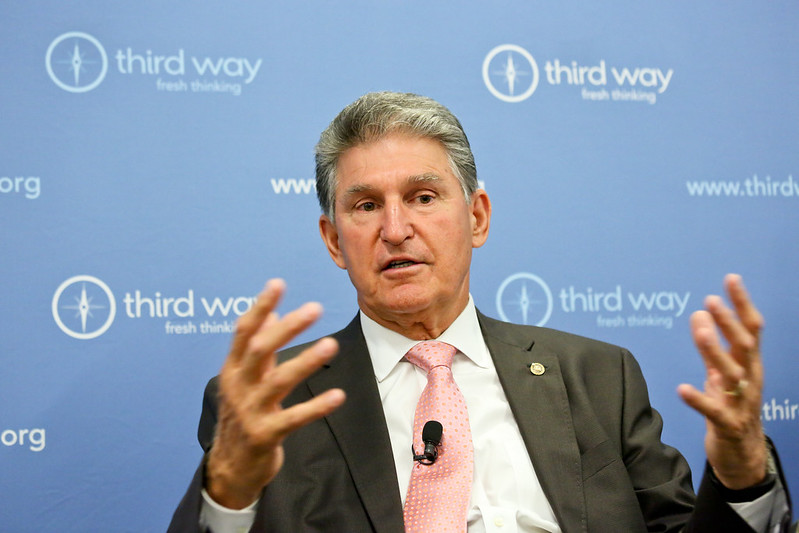
In a last-minute addition to the partisan $1.9 trillion Biden spending plan, Democrats snuck a provision into the bill prohibiting states from cutting taxes. They are doubling down on this restriction and blocking Republican efforts to preserve tax competition by repealing the provision.
Senator Mike Braun (R-Ind.) went to the Senate floor in an attempt to pass the “Let States Cut Taxes Act,” legislation he introduced to repeal this Democrat ban on state tax cuts. Unfortunately, Senator Joe Manchin (D-W.Va.) blocked this attempt.
The Democrat state tax cut ban is an attempt to prevent tax competition as Democrat-run states are failing to compete well with low-tax states. Competition between low-tax states and high- states tax allows voters to see a clear contrast between success and failure. Democrats know that taxpayers have already been voting with their feet. Over the last decade, millions of people and jobs have moved from high-tax states into states with low or no income taxes, and the ability to work remotely will only amplify this trend.
States such as New York, California and Illinois —which have been spending recklessly for decades —will still be allowed to use the bill’s funds to directly grow the size of government or bail out government union pension funds.
There are currently eight states —Alaska, Florida, Nevada, South Dakota, Tennessee, Texas, Washington and Wyoming —that do not impose income taxes of any kind, and this number is expected to increase in the coming years. New Hampshire, which does not tax wage income, is looking to join this list of true no income tax states by phasing out its 5% tax on interest and dividends income. Several more states — including Arizona and Mississippi— are currently exploring ways to put their income taxes on the path to zero.
There is strong conservative opposition to the state tax cut ban on and off the hill:
- Senator Braun and Congressman Dan Bishop (R-N.C.) have introduced the “Let States Cut Taxes Act,” legislation to repeal the Democrat ban on state tax cuts. This bill’s cosponsors include the following: Sen. James M. Inhofe (R-Okla.), Sen. Todd Young (R-Ind.), Sen. Thom Tillis (R-N.C.), Sen. Marsha Blackburn (R-Tenn.), Sen. Rick Scott (R-Fla.), Sen. Mike Crapo (R-Idaho), Sen. Marco Rubio (R-Fla.), Sen. Roger Marshall (R-Kan.), Sen. Shelley Moore Capito (R-W.Va.), Sen. Mike Lee (R-Utah), Sen. Deb Fischer (R-Neb.), and Sen. Bill Hagerty (R-Tenn.)
- Senate Finance Committee Ranking Member Mike Crapo (R-Idaho) has introduced similar legislation, S. 743, the “State Fiscal Flexibility Act.” This bill has the support of Senators Jim Risch (R-Idaho), Tim Scott (R-S.C.), Chuck Grassley (R-Iowa), John Cornyn (R-Texas), Rob Portman (R-Ohio), James Lankford (R-Okla.), Steve Daines (R-Mont.) and Todd Young (R-Ind.).
- House Republican leaders including Ways and Means Ranking Member Kevin Brady (R-Texas), Oversight Committee Ranking Member James Comer (R-Ky.) and House Republican Whip Steve Scalise (R-La.) sent a letter to Treasury Secretary Janet Yellen voicing concerns over the state tax cut ban and requesting guidance on this provision.
- The American Legislative Exchange Council (ALEC) led a coalition letter which was signed by dozens of national and state-based organizations, including Americans for Tax Reform, in opposition to the ban on state tax cuts.
Congressional Democrats have no business dictating to states whether they can or cannot cut taxes. Lawmakers should immediately repeal this prohibition in order to protect tax competition and ensure well run, low tax states can continue to provide tax relief to their residents.

